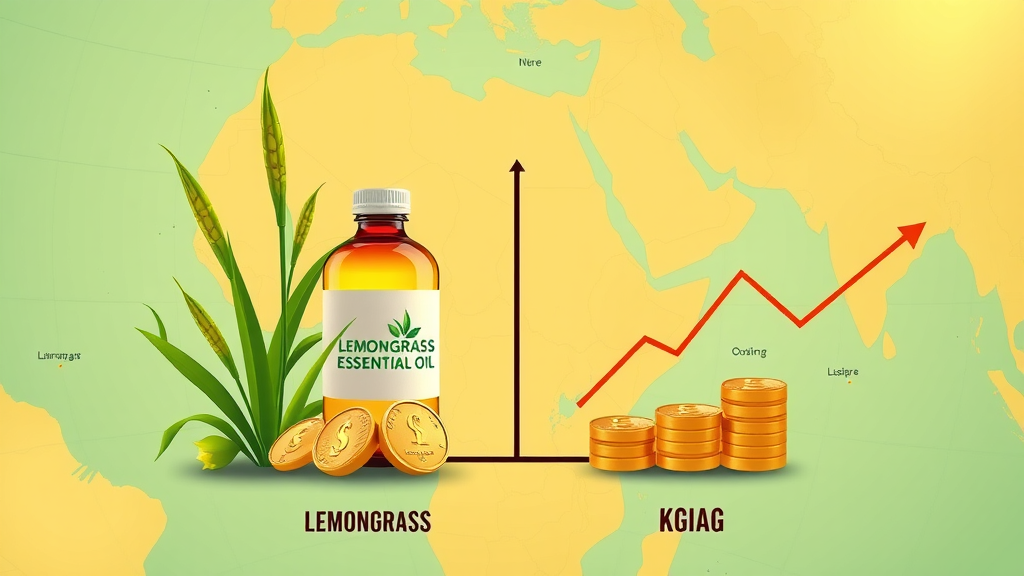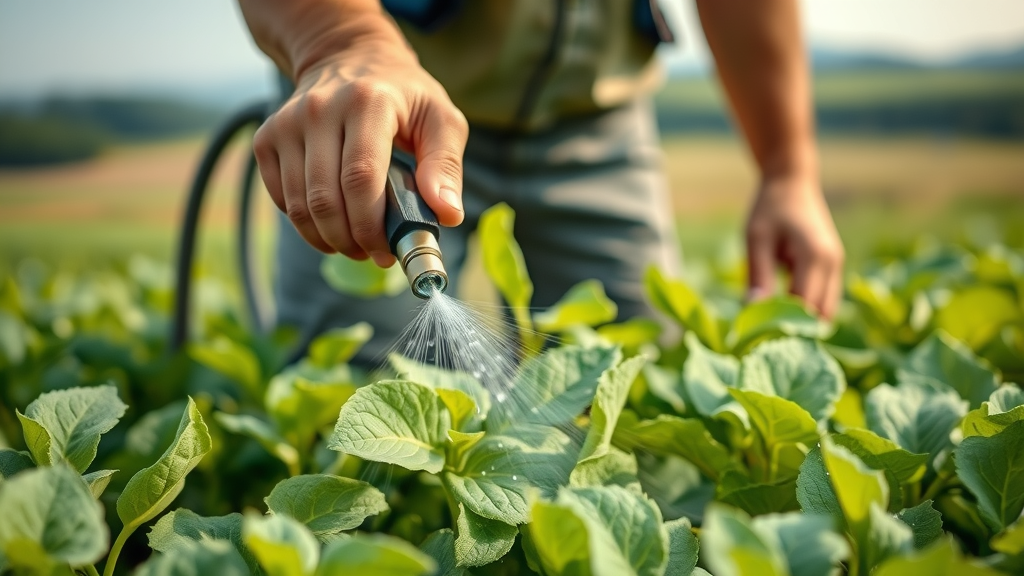Did you know? A litre of lemongrass essential oil can earn thousands of times more than a kilogram of the raw grass it comes from. This staggering fact reveals the hidden wealth in agribusiness essential oils —an opportunity ripe for African farmers and entrepreneurs aiming to maximize profits and sustainability. In this article, we dive deep into the journey of transforming crops into lucrative products, detailing how value addition, sustainable practices, and community empowerment can shape a thriving agribusiness.
What You'll Learn
-
How agribusiness essential oils unlock Africa's agricultural potential through value addition.
-
Popular essential oils in agriculture and their medicinal, antifungal, and pest management roles.
-
Proven extraction and processing techniques that boost quality and profitability.
-
Sustainability strategies and community training efforts essential for lasting success.
-
Common challenges faced and actionable tips for starting or expanding your essential oils venture.
Startling Facts About Agribusiness Essential Oils: Unlocking Africa’s Hidden Potential
The Economic Impact of Value Addition in Agribusiness Essential Oils
African agriculture is often challenged by low margins on raw produce. However, agribusiness essential oils are reshaping the landscape by revealing extraordinary economic benefits through value addition. Utulivu Naturals Uganda's founder highlights that "A litre of lemongrass essential oil earns thousands of times more than a kilogram of raw grass." This incredible return on investment demonstrates why converting crops into essential oils presents a lucrative avenue for farmers and agripreneurs alike.
Value addition not only increases income but also generates new opportunities for export and industrial uses, particularly in cosmetics and wellness products. By focusing on essential oils rather than raw crops alone, agribusinesses can command higher prices, create jobs along the value chain, and sustain farming communities. This paradigm shift is crucial for Africa’s agricultural future, promising economic upliftment and improved livelihoods.

Illustration comparing the economic value of lemongrass essential oil versus raw grass, emphasizing the profitability of agribusiness essential oils.
Understanding Agribusiness Essential Oils: From Medicinal Plants to Market
What Are Essential Oils and Their Role in Agribusiness?
Agribusiness essential oils are highly concentrated plant extracts obtained primarily through steam distillation or cold pressing, prized for their aromatic, medicinal, and pest-repellent properties. These oils are integral in various industries including cosmetics, natural health remedies, aromatherapy, and even sustainable agriculture as eco-friendly pest management solutions.
The role of essential oils in agribusiness extends beyond simple crop production to providing value-centric products that meet a rising demand for natural and ethically produced goods. By harnessing medicinal plants, farmers can tap into niche, high-margin markets while promoting sustainable farming practices that support biodiversity and soil health.
Popular Essential Oils in Agriculture: Lemongrass Oil, Tea Tree, Mint, Lavender, and Clove Oil
Several essential oils dominate the agribusiness landscape due to their versatile applications:
-
Lemongrass Oil: Valued for its citronella content, widely used in insect repellents and cosmetics.
-
Tea Tree Oil: Renowned for potent antifungal and antiseptic properties, commonly used in skincare.
-
Mint Oil: Popular for flavoring and aromatic uses, with pest deterrent qualities.
-
Lavender Oil: Famous for relaxation and therapeutic benefits.
-
Clove Oil: Used in dental care and as a natural pesticide.
These key oils exemplify the diversity and market potential of agribusiness essential oils , each requiring specialized cultivation and extraction approaches.

Photorealistic image of essential oil bottles surrounded by fresh lemongrass, tea tree, mint, lavender, and cloves, representing diversity in agribusiness essential oils.
The Science Behind Essential Oils: Antifungal Properties and Pest Management
Scientific research proves many agribusiness essential oils possess strong antifungal and antimicrobial properties, making them effective natural pesticides and fungicides. For instance, lemongrass oil contains citral, which disrupts fungal growth and deters harmful pests without the environmental damage associated with synthetic chemicals.
This integration of essential oils into pest management promotes sustainable agriculture practices by reducing chemical residues, improving soil health, and protecting beneficial insects. According to Hilda Nagujja of Utulivu Naturals Uganda, "Harnessing these natural extracts not only helps control pests but also creates premium products that empower farmers economically."

Scientist examining essential oil samples in a laboratory setting, highlighting the scientific research behind agribusiness essential oils' benefits.

Expansive vibrant lemongrass fields growing under bright sunlight, the foundational crop for agribusiness essential oils in Uganda.
The Journey of Agribusiness Essential Oils: From Farm to Finished Product
Choosing the Right Crop: Why Lemongrass Stands Out in Essential Oil Production
Lemongrass is a standout choice for agribusiness essential oils due to its adaptability to various climates, relatively low cultivation costs, and impressive oil yield rich in citral—a high-value compound sought by cosmetic and fragrance industries globally.
Hilda Nagujja emphasizes, “Choosing lemongrass was about seeing opportunity where others saw ordinary grass. It’s a crop that transforms livelihoods through value addition.” Growing healthy lemongrass requires good soil, adequate spacing, and timely harvesting to maximize oil quality and quantity.

Healthy lemongrass plants with morning dew, cultivated for premium agribusiness essential oils.
Steam Distillation and Extraction Techniques for High-Quality Essential Oils
Steam distillation remains the preferred extraction method for high-quality agribusiness essential oils , involving passing steam through plant material to vaporize oils, then cooling to liquefy and separate the essential oils. This process preserves volatile compounds and ensures purity.
Traditional distillation setups, like those used by Utulivu Naturals, combine stainless steel and glass to maintain cleanliness and efficiency. Producing consistent quality requires skill and attention to parameters like temperature and distillation duration, which directly affect the oil’s aroma and therapeutic properties.

Steam distillation apparatus in rural Uganda extracts essential oils efficiently, forming the backbone of agribusiness essential oils production.
Value Addition Strategies: Increasing Profit Margins Beyond Raw Produce
Beyond extraction, value addition entails refining, packaging, and marketing essential oil products that meet consumer demands and regulatory standards. Utulivu Naturals’ founder wisely notes, “If you only plan to sell raw produce, be ready for small margins, slow returns, and heartbreak.” Focusing on finished products opens access to premium markets, including exports and wellness sectors.
Innovations like isolating citral and blending oils for niche cosmetic lines amplify revenue streams. Agribusinesses that invest in branding, quality assurance, and customer education reap higher profits and build sustainable brands.
Sustainability and Community Empowerment in Agribusiness Essential Oils
Responsible Sourcing and Environmental Stewardship
Sustainability is central to long-term agribusiness success. Responsible sourcing involves regenerative farming practices that enhance soil fertility, conserve water, and protect biodiversity, ensuring that agribusiness essential oils do not come at the expense of the environment.
Intercropping essential oil crops with diverse plants and trees supports ecosystem health. As Hilda Nagujja explains, “Our goal is to nurture the earth as we harvest its gifts, creating a cycle of wellness for people and planet.” Such stewardship elevates product appeal to eco-conscious consumers and supports certifications that access premium markets.

Regenerative farming scene with diverse crops and essential oil plants, exemplifying environmental stewardship in agribusiness essential oils.
Training and Educating Farmers on Value Addition and Agribusiness Opportunities
Empowering farmers through education enables them to see the true potential of essential oils beyond raw harvests. Workshops and hands-on training on cultivation, distillation, marketing, and business management equip communities to build thriving agribusinesses.
Building Community Connections Through Agribusiness Essential Oils
Strong community ties foster knowledge exchange and collective bargaining power. Agribusiness essential oils ventures often create cooperatives or networks that share resources, reduce costs, and increase market reach. This empowerment uplifts entire regions socially and economically.

Ugandan farmers actively engaged in training sessions on agribusiness essential oils, representing community empowerment.
Overcoming Challenges in Agribusiness Essential Oils
Market Access and Competition in the Essential Oils Industry
Market entry for agribusiness essential oils is often hindered by limited access to buyers, transport logistics, and competition from established producers. Building brand recognition and certification for quality and sustainability differentiates products and creates loyal customers.

Vibrant local market scene showcasing agribusiness essential oils products and lively trade.
Regulatory Considerations: Do I Need FDA Approval to Sell Essential Oils?
Regulations vary by country, but generally essential oils categorized as cosmetics or therapeutic products require compliance with health and safety standards. While FDA approval may not always be mandatory, adherence to local laws, labeling, and quality certifications is crucial to establish trust and legal protection.
Common Misconceptions and Mistakes in Essential Oil Agribusiness
New entrepreneurs often underestimate the importance of value addition, thinking raw crop sales suffice. Others neglect quality control or sustainability, limiting long-term viability. Success requires a comprehensive approach integrating cultivation, extraction, marketing, and community engagement.
Practical Tips for Starting and Growing Your Agribusiness Essential Oils Venture
Selecting High-Value Crops and Understanding Their Market Potential
Choose crops with proven essential oil yields and robust market demand such as lemongrass, tea tree, and clove. Conduct market research to identify profitable niches and diversify product lines to reduce risks.
Implementing Effective Pest Control and Pest Management Using Plant Extracts
Utilize natural pest repellents derived from plant extracts to reduce chemical pesticide use. This enhances sustainability and product appeal to eco-aware consumers.

Farmer applying natural plant extract spray as an organic pest control method supporting sustainable agribusiness essential oils.
Applying the 30 50 20 Rule for Essential Oils Production and Sales
|
Essential Oil |
Primary Uses |
Market Value |
Extraction Methods |
|---|---|---|---|
|
Lemongrass |
Insect repellents, cosmetics, aromatherapy |
High |
Steam Distillation |
|
Tea Tree |
Skincare, antifungal treatment |
High |
Steam Distillation |
|
Mint |
Flavoring, pest deterrent |
Moderate |
Steam Distillation, Cold Pressing |
|
Lavender |
Therapeutic, relaxation |
High |
Steam Distillation |
|
Clove |
Dental care, natural pesticides |
High |
Steam Distillation |
People Also Ask: Essential Oils in Agribusiness
Is essential oil business profitable?
Yes. Agribusiness essential oils have high profit margins due to value addition, demand for natural products, and diverse industrial uses, transforming simple crops into lucrative products.
What are the essential oils used in agriculture?
Common essential oils include lemongrass, tea tree, mint, lavender, and clove, used for pest control, antifungal properties, and as natural pesticides in agriculture.
Do I need FDA approval to sell essential oils?
It depends on the market and product classification. While pure essential oils may not always require FDA approval, marketed therapeutic or cosmetic products often must comply with health regulations.
What is the 30 50 20 rule for essential oils?
This rule guides production allocation and sales strategy—30% effort in research and sourcing, 50% in production and quality, and 20% in marketing and distribution to ensure balanced growth.
Key Takeaways: Building a Thriving Agribusiness with Essential Oils
-
Value addition transforms raw crops into high-profit essential oils.
-
Lemongrass oil exemplifies successful agribusiness essential oils potentials.
-
Sustainability and community training are vital for long-term success.
-
Understanding regulations and market demands ensures business viability.
-
Expert advice from Utulivu Naturals highlights the importance of innovation and perseverance.
Conclusion: Embracing the Future of Agribusiness Essential Oils
As Hilda Nagujja, founder of Utulivu Naturals Uganda, passionately states, “Let’s transform agriculture. One farm. One plant. One product at a time.” The agribusiness essential oils pathway harnesses nature’s bounty for economic empowerment, environmental stewardship, and holistic wellbeing. By innovating around value addition, sustainability, and community collaboration, African agriculture can thrive sustainably in global markets.
Discover Utulivu Naturals Located In Uganda
-
Explore our range of natural essential oil products crafted with care and sustainability.
-
Learn about sustainable farming and value addition to boost your agribusiness.
-
Join a community committed to holistic wellness and economic empowerment.
Visit https://www.unaturals.shop/ to learn more and support local agribusiness.
To deepen your understanding of the role of essential oils in sustainable agriculture, consider exploring the following resources:
-
“The Role of Essential Oils in Sustainable Farming Practices” : This article discusses how essential oils serve as natural solutions for pest control and plant health, reducing reliance on chemical pesticides and promoting environmentally friendly farming methods. ( trieftaaromanusantara.com )
-
“Essential Oils in Agriculture: A Natural Remedy for Pest Control” : This piece explores the increasing use of essential oils as eco-friendly alternatives to chemical pesticides, highlighting their effectiveness in protecting crops while preserving the ecosystem. ( husfarm.com )
These resources provide valuable insights into integrating essential oils into agribusiness, offering natural and sustainable solutions for pest management and crop health.
 Add Row
Add Row  Add
Add 




Write A Comment